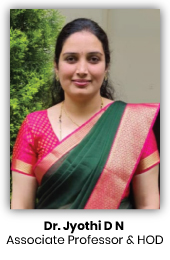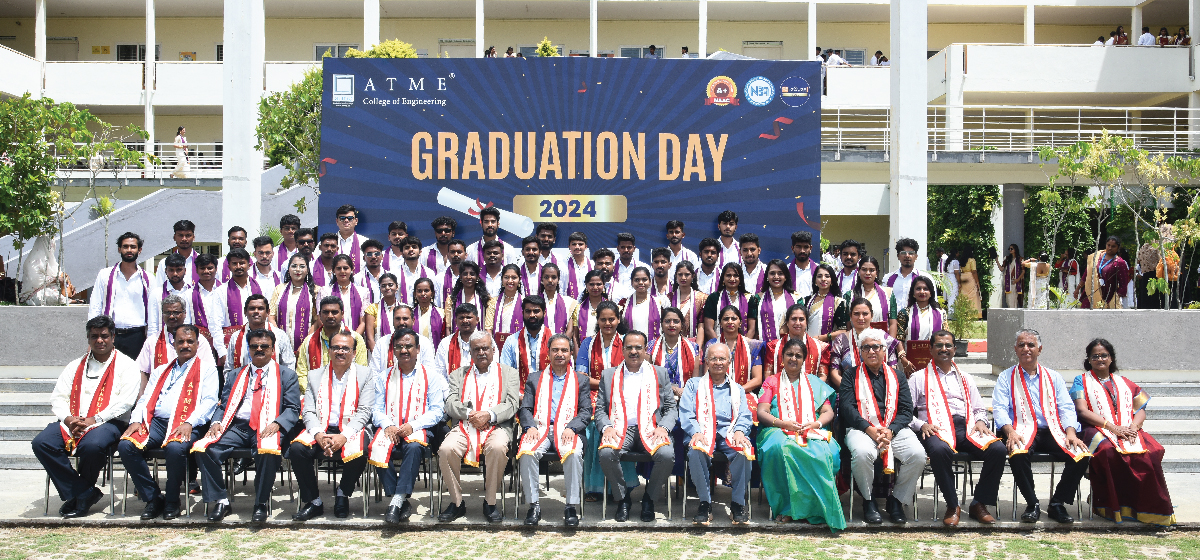Department of Civil Engineering
About the Department
The Department of civil engineering is growing tremendously over the years. With this small span of time the department has nurtured young minds to produce bright able civil engineers to the society. The department has expertise in almost the entire spectrum of civil engineering namely in Highway technology, Planning, Design, Construction and Management. The department with its multifaceted faculty continues to maintain and cultivate its strong links with infrastructural industry, academics and research. Many of our faculty members and students are involved in research activities in various areas of civil engineering. The department is developing strong links with the building and construction industry and academics. Along with the curricular the department encourages its students to take part in various cultural-sports-art festivals in and around the country.
The future civil engineers here are always taught with the practical applications by the field expertise. The department is also very active in conducting workshops, short term seminars etc. and at the threshold of planning of the technical festival.
Various lab facilities are provided to students here. The labs here provide expertise in Structural Engineering, Transportation Engineering, Geotechnical Engineering, Environmental Engineering, Hydraulics and Surveying. With these state of art infrastructure the students involves them in research with the guidance of expertise faculties.

HOD’s Message
The department of civil engineering is emerging as one of the fastest growing branches by imparting quality education to the students in all the major areas of civil engineering. All the faculties in the department are well qualified with experience both from teaching and industry. The department is forecasting the vision of the college and striving hard for making students technically excellent, culturally vibrant, socially responsible and globally competent. The students are exposed to practical real time studies there by training them to analyse and provide solution for the same. Along with curricular, students are trained in all dimensions by means of seminar, workshops, Hands on work, technical talks, industrial visit, internships, site visit and many more. This provides a well built platform to enhance their enthusiasm and practical knowledge, which makes them to be confident to tackle any civil engineering challenges and be advanced and innovative with the growing technology.
To develop globally competent civil engineers who excel in academics, research and are ethically responsible for the development of the society.
- To provide quality education through faculty and state of the art infrastructure
- To identify current problems in the society pertaining to Civil Engineering disciplines and to provide solution effectively and efficiently
- To inculcate the habit of research, leadership and entrepreneurship in our graduates to explore current infrastructure needs of society
PEO 1– Engaged in professional practices, such as construction, environmental, geotechnical, structural, transportation, water resource engineering by using technical, communication and management skills.
PEO 2– Engaged in higher studies and research activities in various civil engineering fields and life time commitment to learn ever changing technologies to satisfy increasing demand of sustainable infrastructural facilities.
PEO 3– Serve in a leadership position in any professional or community organization or local or state engineering board
PEO 4– Registered as professional engineer or developed a strong ability leading to professional licensure being an entrepreneur.
Engineering Graduates will be able to:
PO1. Engineering knowledge: Apply the knowledge of mathematics, science, engineering fundamentals, and an engineering specialization to the solution of complex engineering problems.
PO2. Problem analysis: Identify, formulate, review research literature, and analyze complex engineering problems reaching substantiated conclusions using first principles of mathematics, natural sciences, and engineering sciences.
PO3. Design/development of solutions: Design solutions for complex engineering problems and design system components or processes that meet the specified needs with appropriate consideration for the public health and safety, and the cultural, societal, and environmental considerations.
PO4. Conduct investigations of complex problems: Use research-based knowledge and research methods including design of experiments, analysis and interpretation of data, and synthesis of the information to provide valid conclusions.
PO5. Modern tool usage: Create, select, and apply appropriate techniques, resources, and modern engineering and IT tools including prediction and modeling to complex engineering activities with an understanding of the limitations.
PO6. The engineer and society: Apply reasoning informed by the contextual knowledge to assess societal, health, safety, legal and cultural issues and the consequent responsibilities relevant to the professional engineering practice.
PO7. Environment and sustainability: Understand the impact of the professional engineering solutions in societal and environmental contexts, and demonstrate the knowledge of, and need for sustainable development.
PO8. Ethics: Apply ethical principles and commit to professional ethics and responsibilities and norms of the engineering practice.
PO9. Individual and team work: Function effectively as an individual, and as a member or leader in diverse teams, and in multidisciplinary settings.
PO10. Communication: Communicate effectively on complex engineering activities with the engineering community and with society at large, such as, being able to comprehend and write effective reports and design documentation, make effective presentations, and give and receive clear instructions.
PO11. Project management and finance: Demonstrate knowledge and understanding of the engineering and management principles and apply these to one’s own work, as a member and leader in a team, to manage projects and in multidisciplinary environments.
PO12. Life-long learning: Recognize the need for, and have the preparation and ability to engage in independent and life-long learning in the broadest context of technological change.
After completion of program, students will be able to
PSO 1 – Provide necessary solutions to build infrastructure for all situations through competitive plans, maps and designs with the aid of a thorough Engineering Survey and Quantity Estimation.
PSO 2 – Assess the impact of anthropogenic activities leading to environmental imbalance on land, in water & in air and provide necessary viable solutions revamping water resources and transportation for a sustainable development.
- To Build and promote teams of Experts in curricular and Co-Curricular activities.
- Professional growth of Faculty.
- Motivate and Promote Students and faculties and Organize and Participate in national/International symposiums, Conferences.
- To Collaborate with Corporates to enhance the Practical knowledge.
- Promotion of R&D Activities in of science and technology with special emphasis on emerging domain.
- To continuously upgrade the physical and laboratory infrastructure.
- Establishing centre of excellence of different specialized areas.
- To motivate the faculty to remain exposed to the industrial processes and activities.
- To promote quality research and undertake research projects keeping in view their relevance to the needs and requirements of technology.
| Program | Leading to.. | Duration | Intake |
| Civil Engineering | B.E | 4 year | 30 |
|
Semester/Section |
In-Charge Name | Mail ID |
Phone No. |
| 4th ‘A’ | Prof. Rudresh A N | rudreshan_cv@atme.edu.in | 9743580290 |
| 6th ‘A’ | Prof. Bharathi B | bharathib_cv@atme.edu.in | 8496009262 |
| 8th ‘A’ | Prof. Akhila C G | akhilacg_cv@atme.edu.in | 9743726895 |


